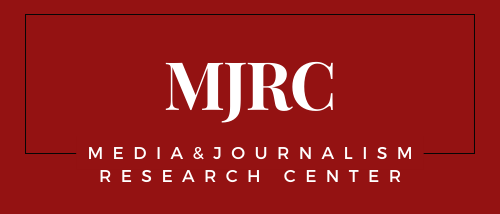Andrei Richter
Andrei Richter is Researcher Professor at Comenius University in Bratislava and Adjunct Professor of the Webster University in Vienna. In 2011-22 he served as Director and a Senior Adviser at the Office of the OSCE Representative on Freedom of the Media.
An Austrian citizen, Richter holds university degrees in law, journalism and foreign languages, a doctorate of philology in Russia and a habilitated professorship in media studies from Slovakia.
He has authored more than 250 publications on media law and policy in 12 languages, including the standard media law textbook for journalism students in the Russian Federation (2002, 2009, 2016), a textbook on international standards of media regulation (2011), a textbook on online media law (2014), and a book on censorship and freedom of the media in post-Soviet countries, published by UNESCO (2007). Dr Richter sits on the editorial boards of a number of international journals on communications and the media.
Andrei Richter was a long-time professor at the School of Journalism, Lomonosov Moscow State University, where hechaired a department in media law and history. He founded and led Moscow Media Law and Policy Center, a Russian NGO in 1990-2010s.
He also served as a commissioner at the International Commission of Jurists and the Chair of the Law Section of the International Association for Media and Communication Research.
See below more information about Richter’ project conducted as an MJRC fellow.
Dr Richter’s research interests include the legal challenges caused by the resurrected phenomenon of propaganda and hate speech, which often operate with disinformation, especially online and in audiovisual media.
The conflict in and around Ukraine since 2014 and U.S. elections in 2016 have brought about a spread of propaganda and hate speech. While in Ukraine the search for the right toolbox to stop its spread into the country without endangering the fragile democracy is a matter of life and death, the threat of Russian propaganda is also perceived with particular acuteness in other neighbouring countries with Russian-speaking population, from Finland in the north to Moldova and Georgia in the south. As such, Russian propaganda is considered a threat to the European values by the European Parliament and EU’s executive bodies.
As today’s media environment is characterized by proliferation of propaganda-driven disinformation, it confronts professional traditional media entities with numerous new challenges, and places a heavier burden on journalists and standards of journalism. Additionally, the current state of technologies allows an instant diffusion of reports across borders without professional gate-keepers.
By blurring the lines between false and true, propaganda and disinformation undermine public trust in quality journalism and its role in a democratic society. Furthermore, the prevalence of online and offline disinformation can threaten international peace, weaken states’ sovereignty, political independence, territorial integrity and the safety of citizens.
The main purpose of Dr Richter’s research is to provide factual comparative information and analysis on the main aspects of the disinformation/propaganda phenomenon and the question of how to deal with it. It reviews existing international standards, current national and international practices of policy-making and regulation, scholarly work and relevant efforts by the media associations and companies, recommendations for possible common efforts in dealing with the false news phenomenon in Europe.
Using the comparative legal method, the author analyzis sources of international and national law to determine their approaches to addressing the dissemination of disinformation. This methodological approach provokes relevant sources that are often not observable if the focus is on an individual international organization, nation or a covenant. Comparative studies can reveal the continuity and discrepancies of legal responses in various contexts that all claim to share common global values of free speech and free media.
Dr Richter is interested in reviewing European and other international obligations in regards to hateful internal and particularly transfrontier propaganda in the context of freedom of expression and freedom of the media commitments. The starting points is implementation of article 20 (on ban of war propaganda and incitement to hatred) of the International Covenant on Civil and Political Rights, as well as its interpretations by the UN and other international bodies. Discussion of the relevant case law of the European Court of Human Rights is important as well: even though the European Convention on Human Rights lacks an equivalent to article 20, it had cases pertinent to the research topic.
Today’s digital media environment and the widespread proliferation of propaganda-driven disinformation confront professional media entities with numerous new challenges, and place a heavier burden on journalists and standards of journalism. Pursuit for truth is a basic principle that stays for professional journalism, and the research examins the current good practices on self-regulation of disinformation in Europe. It is important to review the recent efforts by media associations and companies to self-regulate and to promote media literacy as an antidote to disinformation, as well as the relevant intergovernmental policies in Europe. The research will look into the relevant decisions of self-regulation bodies, such as media councils.
Dr Richter is interested to assess and comment on the strengths and weaknesses of the position on co-regulation of propaganda and disinformation of the European Institutions in Brussels, Strasbourg, and Vienna in regards to propaganda and disinformation, statements of other international human rights.
The research aim is to deliver a modern rationale for regulation of hostile propaganda and provide recommendations to governments, courts, civil society, and media organizations. It includes specific recommendations on fine-tuning existing mechanisms to counteract disinformation, in particular through legal instruments, media accountability and literacy.
Dr Richter’s knowledge of the Russian media system, scholarly experience in media law of the post-Soviet countries, and international standards on media freedom facilitates research on the issue. The list of publications demonstrates that Dr Richter is focused on this research topic since 2015, having published a book and a dozen scholarly articles on the subject. This makes the research solid, well-considered, and realistic.
Invest in independent media research and join a community of practice.
Your contribution supports MJRC’s investigations and global analysis. As a supporter, you can receive early access to new findings, invitations to small-group briefings, inclusion in our Supporters Circle updates, and the option to be listed on our Supporters Page.
Contribute to MJRC
